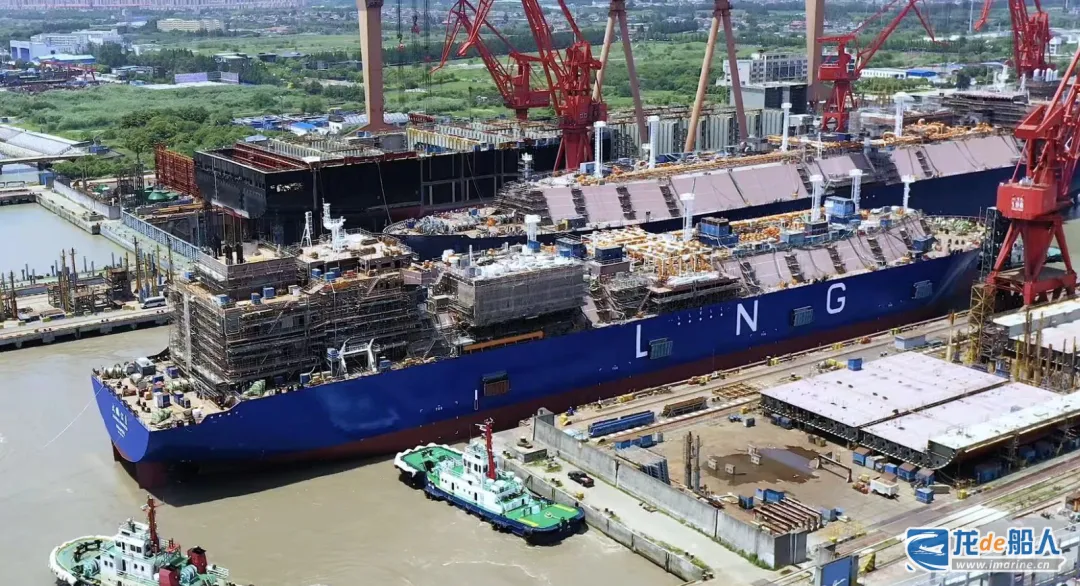Last April, the U.S. government launched a “301 investigation” into China’s maritime, logistics and shipbuilding industries. On Jan. 13, Reuters news agency sources said three sources familiar with the results of the trade investigation revealed that the Biden administration had concluded that it would release the results of the investigation a few days before Biden’s departure and later in the week.

At the request of the United Steelworkers and four other American unions, U.S. Trade Representative Katherine Tai launched an investigation into China’s shipping and shipbuilding industries in April 2024 under Section 301 of the Trade Act of 1974.
Under this provision, the U.S. can investigate trade practices of other countries that it deems “unfair” and can take retaliatory measures such as raising tariffs, restricting imports, and suspending relevant agreements.
Reuters quoted a source as saying that investigators concluded that China helped its shipbuilding and shipping companies gain “dominance” through alleged “barriers to foreign companies, forced technology transfer and intellectual property theft, and procurement policies.”
The Chinese government has also “artificially suppressed labor costs in China’s maritime, shipbuilding and logistics industries,” the sources said, citing excerpts from the report.
China’s share of the $150 billion global shipbuilding industry has expanded from about 5 percent in 2000 to more than 50 percent by 2023, according to data cited in the survey. “This is mainly due to government support,” the report said, while the share of once-dominant U.S. shipbuilders has fallen to less than 1 percent. South Korea and Japan are the second and third largest shipbuilders.
According to an excerpt obtained by Reuters, the report concludes that “China’s targeting of the maritime, logistics and shipbuilding industries in an attempt to dominate them is the biggest obstacle to U.S. revitalization of those industries.”
Reuters said, “The report provides new leverage for the incoming Trump administration to crack down on China and may pave the way for U.S. labor unions to impose tariffs or port fees on Chinese-made ships.” The policy is likely to be released after the public comment period.
The Office of the U.S. Trade Representative (USTR) will release its findings later this week, days before Democrat Joe Biden leaves office on Jan. 20, sources said.
In the early 1980s, there were more than 300 U.S. shipbuilders; now there are only 20 public and private shipbuilders left. Meanwhile, demand for U.S. merchant and naval vessels is strong and growing.
Reuters said experts agree that the rebuilding of the U.S. shipbuilding and shipping industry will take decades and cost tens of billions of dollars, and tariffs alone are not enough. Despite the many differences between the two parties in the U.S., but in the need to solve the problem of the U.S. shipbuilding industry reached a rare consensus.
Trump has said he would raise tariffs on Chinese goods to 60 percent. In an interview last week, he said China dominates the merchant and military shipbuilding industry and that the U.S. has “suffered tremendously” and needs to shift course. Trump has also previously said the U.S. needs to work with shipbuilders in South Korea and Japan.
With regard to the “301 investigation” initiated by the USTR against China’s maritime, logistics and shipbuilding industries, China has previously expressed its strong dissatisfaction and resolute opposition.
On April 21 last year, the spokesman for the China Council for the Promotion of International Trade (CCPIT) said that the U.S. initiated the “301 investigation” is unreasonable and groundless, and there is no causal relationship between the decline of the U.S. shipbuilding industry and China’s laws, policies and practices. Relevant U.S. studies have also shown that the U.S. maritime, logistics and shipbuilding industry is facing difficulties is mainly due to the lack of competitiveness of its own industrial market.
The spokesman said that a number of studies had shown that the U.S. shipbuilding industry had lost its competitive edge years ago because of overprotection. The U.S. has provided hundreds of billions of dollars in discriminatory subsidies to its own industries, but accuses China of adopting so-called “non-market practices”. In fact, the development of China’s industry is the result of technological innovation and active participation in market competition by enterprises, and the U.S. accusation is simply untenable.


